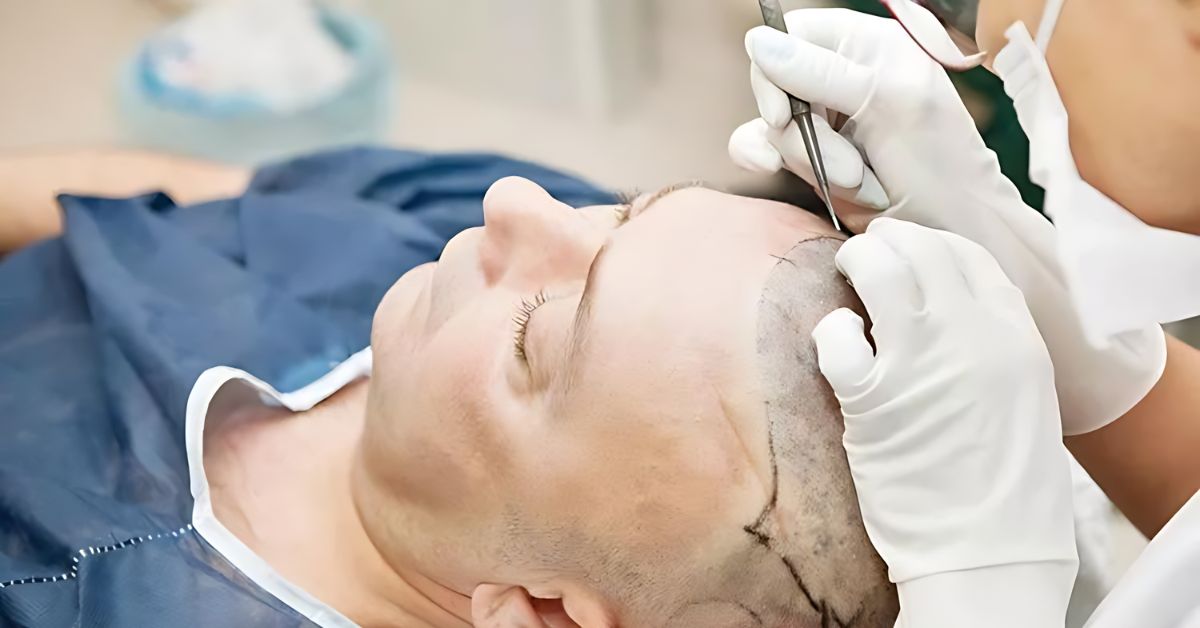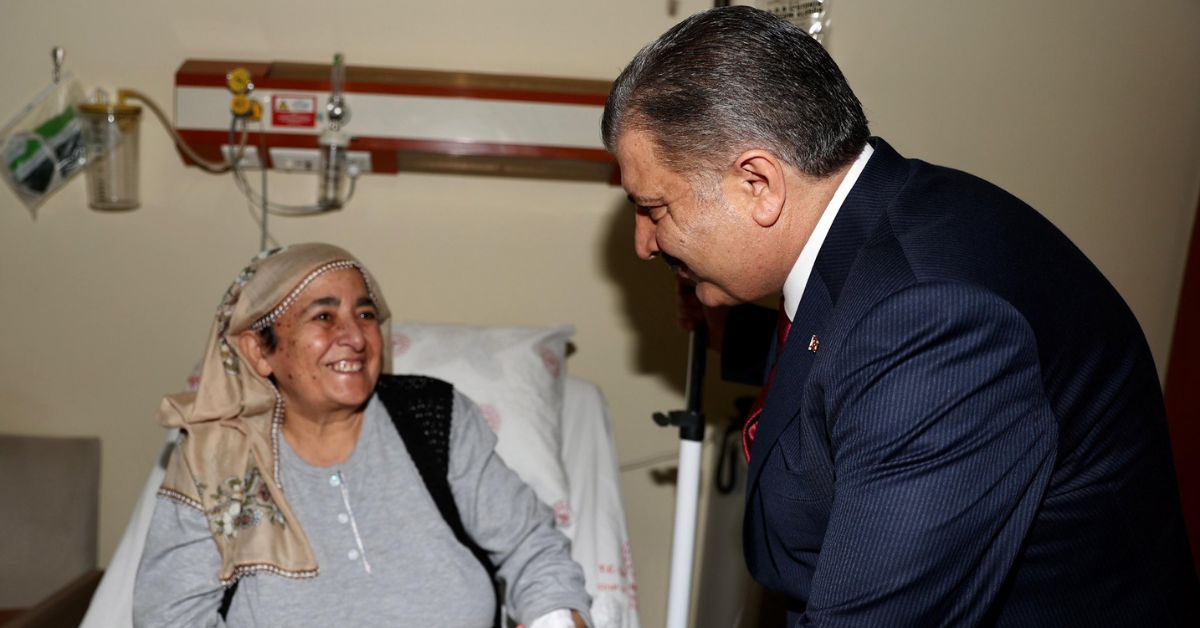ANKARA — Observing the consistent influx of foreign medical tourists to Türkiye recently, it’s hard to grasp the frustration many Turkish citizens once experienced when seeking local healthcare.
Over the past two decades, Turkish hospitals have undergone a remarkable transformation. In fact, individuals in their 20s might struggle to remember the agonizing waits their parents once faced for even basic procedures.
Today, Turkish public healthcare services are not only easily accessible to most citizens, but they’re also largely free of charge.
In 2003, the Turkish government rolled out a healthcare transformation plan along with universal healthcare insurance. Now, universal healthcare coverage extends to 95 percent of the population.
Profit-driven private healthcare has simultaneously expanded. Both sectors cater to medical tourism, albeit with distinct business models.
In 2022, Türkiye welcomed over 1.25 million medical tourists, marking an 87 percent increase from 2021, as per data from the International Health Services Company (USHAŞ) website.
Established in 2019 by the Ministry of Health, the Ankara-based USHAŞ aims to help Türkiye achieve its medical tourism aspirations.
Turkish healthcare sector at a glance Two Decades of Transformation: Turkish hospitals have seen a significant overhaul in the past 20 years. 95% Coverage: Universal healthcare now extends to 95% of the Turkish population. 1.25 Million Medical Tourists: Türkiye welcomed this number in 2022, an 87% increase from 2021. $50 Billion Investment: Over 15 years, this amount was invested in hospitals and technology. 1,400+ Health Service Providers: Along with 250 companies catering to medical tourists. $1.1 Billion to $2.1 Billion: Surge in medical tourism revenues from 2019 to 2022. Potential $5 Billion: Estimated actual revenues from medical tourism in 2022. Four Major Cities: Istanbul, Ankara, Antalya, and Izmir touted as medical treatment hubs. Multilingual Staff: Turkish hospitals employ professionals fluent in English, Arabic, Russian, or Georgian. August Industry Exhibition: Healthcare tourism sector companies from Türkiye and Arab nations convened in Istanbul. 1/6th of Western Europe Prices: Cost of hair transplant procedures in Türkiye. Decline of Turkish Lira: This has enhanced Türkiye's cost advantage for medical treatments compared to Western Europe.
In 2019, Turkish medical tourism revenues stood at $1.1 billion, which surged to $2.1 billion in 2022. However, actual revenues might have been closer to $5 billion last year, given that many hospitals, clinics, and agent companies often don’t disclose their earnings.
The ambitious next goal? Raking in $10 billion annually from this sector.
Starting in the early 2000s, Türkiye saw investments exceeding $50 billion in hospitals and technology over 15 years, equipping it with the infrastructure needed to attract international patients.
A significant portion of these medical tourists hail from Arab nations, with Iraq, Qatar, Kuwait, Bahrain, Algeria, Morocco, and Sudan identified as potential primary sources for medical tourists.
Given that Istanbul, Ankara, Antalya, and Izmir are major popular vacation spots, these cities are also touted as hubs for treatments in areas like cardiovascular care, organ transplants, dentistry, and plastic surgery.
Bridging the language gap is essential for patient rapport, and Türkiye boasts a robust group of multilingual professionals. “In their health tourism units, Turkish hospitals employ staff fluent in English, Arabic, Russian, or Georgian,” noted Mustafa Akman, an MD in pediatrics who has treated patients from the Gulf Arab region.
Arabic-speaking immigrants have uncovered new job opportunities in hospitals. Almost every health center employs Arab assistants or translators to aid patients. Moreover, the business boom has prompted hospitals to recruit doctors of Arab, Iranian, or Pakistani descent to attract more Middle Eastern patients.
Several factors make Türkiye appealing for those seeking medical treatments overseas. The primary ones include: cost-effectiveness, high-quality care, and convenient flight connections with major cities in the Middle East and Europe.
With over 1,400 accredited health service providers and 250 companies catering to medical tourists, the healthcare sector is now well-structured.
Treatment packages are a significant benefit offered by Turkish hospitals. They offer comprehensive health packages that encompass hotel transfers, city transportation, accommodation, and surgical fees. “Patients prefer a package deal covering flight tickets, lodging, and treatment costs. This way, they’re assured of no surprise expenses,” Akman explained.
Harun Çelik, who manages a dental clinic in Istanbul, emphasized that the quality of surgical procedures in Türkiye is renowned among Gulf residents. “While price is a crucial factor, without offering top-notch care, patients simply won’t come,” he stated.

The Turkish healthcare sector, including public hospitals, has ramped up promotional efforts through trade shows and bilateral agreements in various countries across the Middle East, Africa, and Europe.
In August of this year, healthcare tourism sector companies from Türkiye and Arab nations convened in Istanbul for a two-day industry exhibition. Hosted by the Turkish-Arab Countries Business Association (TURAB), the inaugural Expo Health Tourism aimed to foster collaboration between the two regions through combined initiatives.
Ahmed El Sobky, Egypt’s deputy minister of health and population, emphasized the strong ties between Türkiye and Arab nations during the trade fair. There’s also a rising interest from Arab investors in acquiring Turkish healthcare firms and investing in manufacturers of medical equipment and technology developers.
Moreover, Arab patients and their companions can easily adapt to the dietary offerings in Türkiye due to the similarities in cuisine. Their religious and cultural sensitivities are also honored in this predominantly Muslim nation.
Türkiye initially marketed its healthcare services to the Turkish diaspora in Europe. However, infrastructure advancements have expanded its reach to include countries like Russia, Nigeria, Afghanistan, and Pakistan. Given its proximity to the Arab region, it’s only logical for Türkiye to cater to Arabs seeking medical treatments overseas for various reasons.
The widespread popularity of Turkish soap operas in the Arab region has further familiarized Arabs with Türkiye as a destination, benefiting the medical tourism sector in the process.
This healthcare promotional strategy is epitomized in a statement made by Turkish President Recep Tayyip Erdoğan during the inauguration of a large hospital in the northwestern Kocaeli province earlier in April. “We are determined to position Türkiye as a global healthcare hub, not just serving its own citizens,” Erdogan declared.
On a lighter note, one standout in the medical tourism sector is the booming hair transplant industry. The surge of balding men traveling to Türkiye for hair transplants has led some to humorously dub the national airline “Turkish (H)airlines.”
In recent times, Türkiye has emerged as a premier destination for hair transplants, with procedures costing as little as one-sixth of the prices in Western Europe. The decline of the Turkish lira against the US dollar has further enhanced Türkiye’s cost advantage for various medical treatments. While living and labor costs in Türkiye are lower compared to Western Europe, the nation boasts highly trained medical professionals and hospitals furnished with cutting-edge technology and equipment.








